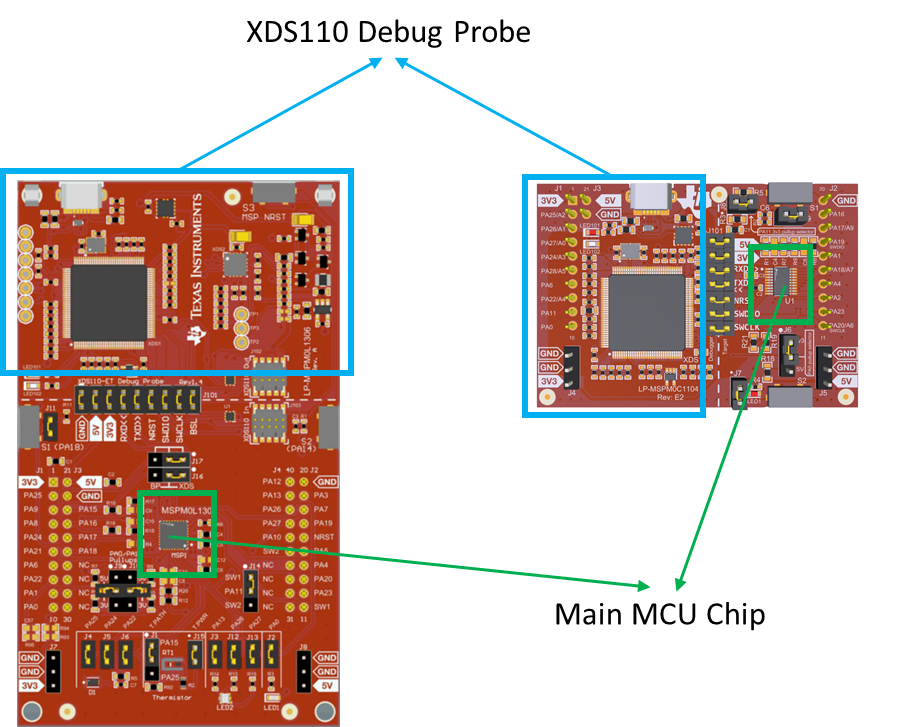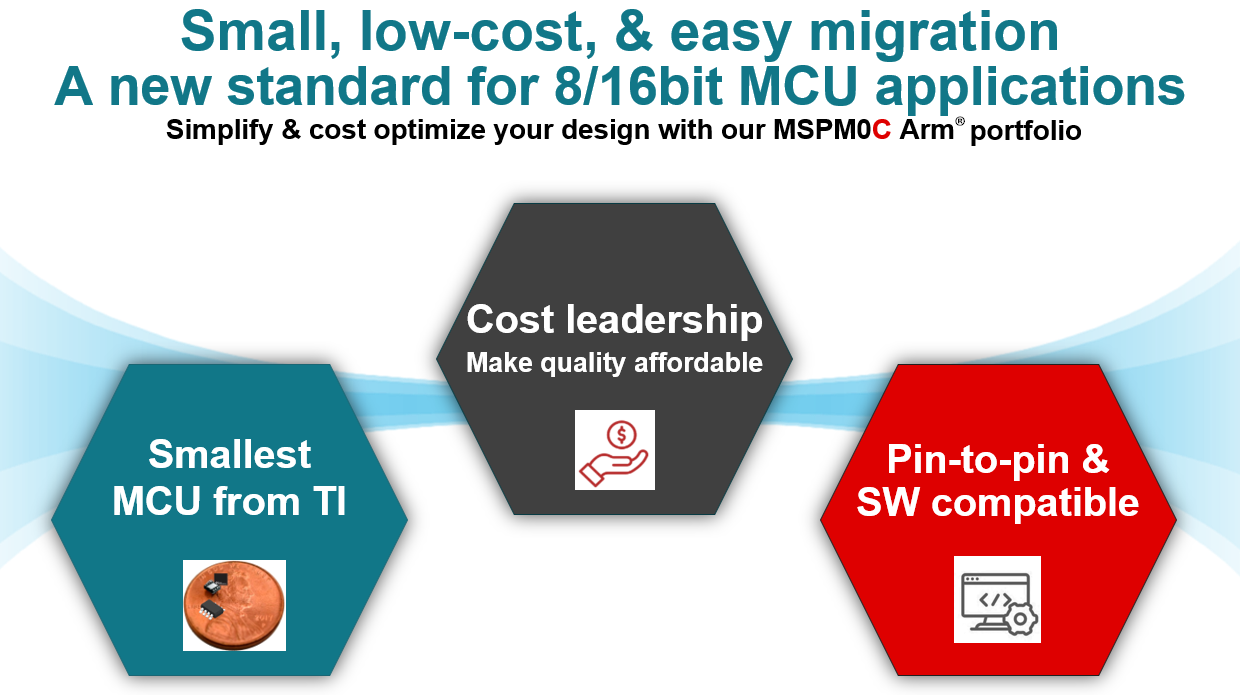SPRT771 January 2024
The MSPM0C1104 LaunchPad™ Development Kit (LP-MSPM0C1104) is an easy-to-use evaluation module for the MSPM0C1104 microcontroller (MCU). The kit contains everything needed to start developing on the MSPM0C110x microcontroller platform, including onboard debug probe (TI XDS110 Debug Probe) for programming and debugging.
LP-MSPM0C1104 features:
- Small size:
- A comparison of size between a normal size LaunchPad LP-MSPM0L1306 (size @ 6cm × 10cm) and new LP-MSPM0C1104 (size @ 4cm × 6cm)
- High integrated:
- Onboard XDS110 Debug Probe
- Back-channel UART through USB to PC
- USB powered
- 20-pin BoosterPack™ Plug-in Module headers
- RC filter for ADC input or PWM DAC output
- 1 user button
- 1 red LED
- Easy to use:
- Plug-in and go, plug LP-MSPMC1104 into a PC with the provided USB cable, directly work with PC IDE and programming tools
 LP-MSPM0L1306 (6cm × 10cm) vs LP-MSPM0C1104
(4cm × 6cm)
LP-MSPM0L1306 (6cm × 10cm) vs LP-MSPM0C1104
(4cm × 6cm)LP-MSPM0C1104 also belongs to the TI MSPM0 ecosystem, which can support customers from evaluation to production, covering full design stages:

MSPM0C1104 is an Arm® 32-bit Cortex®-M0+ CPU with frequency up to 24MHz. The device features 16KB of embedded flash memory combined with 1KB of on-chip RAM. This device includes an integrated 12-bit 866KSPS SAR ADC with 10 external channels.
MSPM0C is part of MSPM0 family portfolio, offers small (2mm × 2mm package), low-cost (<$0.20 options), and easy migration features.

Applications
- Battery charging and management
- Power supplies and power delivery
- Personal electronics
- Building security and fire safety
- Connected peripherals and printers
- Grid infrastructure
- Smart metering
- Communication modules
- Medical and healthcare
- Lighting
For more information, view the following TI.com product folders: MSPM0C1104 page, LP-MSPM0C1104 page.